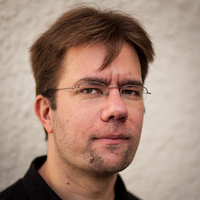In the same section
Professor

francois.foret@ulb.be
+32 (0)2 650 67 10

Cevipol/Institute for European Studies
Avenue F.D. Roosevelt, 39 - CP 172
1050 Bruxelles
Office 308
Bio
François Foret is Professor of Political Science at the ULB, President of the Institute for European Studies and a researcher at Cevipol. He is also a researcher at the Robert Schuman Centre, European University Institute in Florence. He specialises in political sociology, European studies and comparative politics. His research focuses on political narratives and the interaction between politics, culture, memory and religion. He keeps a comparative eye on Japan and the United States and is open to dialogue with other disciplines, including theatre and literature.
CV
- 2023... President of the ULB Institute of European Studies
- 2015-2020 : Director of CEVIPOL
- 2011-… Professor of political science at the Université Libre de Bruxelles
- 2006-2011 Lecturer at the Université Libre de Bruxelles
- 2004-2006 Lecturer at the Facultés Universitaires Catholiques de Mons, Académie Louvain
- 2003-2004 Researcher at the University of Stirling (Scotland, United Kingdom) and within the European network CIDEL ("Citizenship and democratic legitimacy in the European Union")
- 2001-2003 Lecturer and researcher in political science at the Institut d'Etudes Politiques de Strasbourg and the Université Robert Schuman (Strasbourg III)
Areas of research
- Legitimization of political orders
- Identities, memories, cultures and political symbolism
- Religion and politics
- Political narratives: production, circulation, reception
- European Union: political system; politics and institutions; policies
- Comparison: Europe, Japan, United States
- Teaching
- Research
-
Since my early days as a researcher, my theoretical thinking has focused on the way in which the legitimisation of political orders and collective identities interact. Individuals and social groups are constantly redefining how they fit into time, space and society. In so doing, they are constantly reformulating their allegiance to the powers that be, their modes of cooperation or conflict, the level and form of their political participation, their discourse on identity and memory, and their involvement in living together. In return, the institutions develop new modes of regulation and domination adapted to the multiplicity and fluidity of memberships and loyalties (see Legitimising Europe. Pouvoir et symbolique à l'ère de la gouvernance, 2008).
Empirically, I am particularly interested in the symbolic politics of states and international organisations as a field of interaction between culture and politics. In The European Union in Search of Narratives: Disenchanted Europe? (2025), I study three main narratives ('the Europe of rights', 'the Europe of values' and 'the European way of life') to trace their genesis, political use and reception across national and political boundaries over the last two decades.In recent years, religion has been a touchstone for the mutual influences of the political, social and cultural in a general context of disenchantment with the world (cf. Religion and politics in the European Union, 2015).
As far as methods are concerned, as a hybrid political scientist campaigning for the necessary plurality of knowledge and modes of unveiling the world, I like to start from political sociology and move towards comparative politics and political theory, borrowing extensively from anthropology or history, as well as any other approach that proves relevant.
Geographically, I am primarily a specialist in Europe. I study the construction of Europe as a multi-dimensional and multi-level form of governance, approaching the EU as a complete political system in which the national and supranational are inextricably intertwined (De l'Etat à l'Union européenne, 2015). Gradually, I have extended my analysis to compare Europe with other regions of the world (notably the United States and Japan, cf. e.g. Values in European and Japanese politics, 2015).Projects in progress
- Ewolution and NarratEUR study the legitimizing narratives of the EU from the production to their circulation across national and policy boundaries and their reception by citizens. Case studies include narratives in terms of sovereignty, values, rights and identity/culture/memory and way of life and issues and sectors such as higher education, morality politics or communication.
- Religion at the European Parliament (REEP, 2019-2024) is an international research project that investigates what the members of the European Parliament (MEPs) believe, and what they do with these beliefs.
- The European Union' strategies to advocate freedom of religion and belief and to counter radicalization" (PDR-FNRS, 2018-2020) The European Union (EU) has recently emerged as a significant player to promote freedom of religion and belief (FoRB) in its external policy and to build a coordinated approach of counter-radicalization (CR) in internal affairs. The purpose is to explain the reasons, modalities and effects of this new role of European institutions and arenas; and what is says about the contemporary recombination between the member states and the EU on one hand; between politics and religion on the other hand.
- Brussels and Strasbourg as European capitals / International organisations and global cities (ORGINVIL, 2020-2022) G3 Project - Brussels-Geneva-Montreal. In the context of globalisation, international organisations (IOs), whether governmental or non-governmental, play an important role in defining and expressing the dynamics between global and national players.
- Art as an object and a tool for the social sciences studies how artistic forms are mobilised as a repertoire for political action and, more broadly, the interactions between cultural productions and politics.
- Governing values, governing through values, governed by values? The European Union as a risk polity" (ValEUR), a collaborative research project (F. Foret, spokesperson; Ramona Coman; François Heinderyckx), studies the regulation of normative issues in internal and external European policies. (2015-2020)
- Publications
-
2025 - Disenchanted Europe? The European Union in search of narratives (Rights-Values-Way of life), London, Routledge
2015 - De l'Etat à l'Union européenne, Bruxelles, Editions de l’Université de Bruxelles
2015 - Religion and politics in the European Union, The Secular Canopy. Cambridge, Cambridge University Press
2008 - Légitimer l’Europe. Pouvoir et symbolique à l’ère de la gouvernance, Paris, Presses de Sciences Po
(For more publications and full texts, see Academia or Researchgate)

